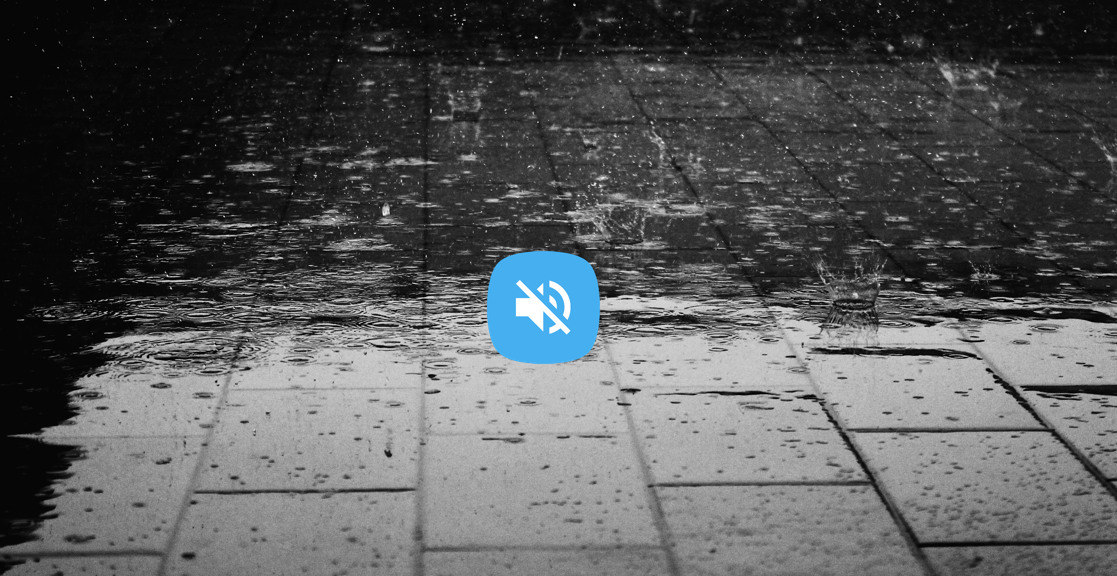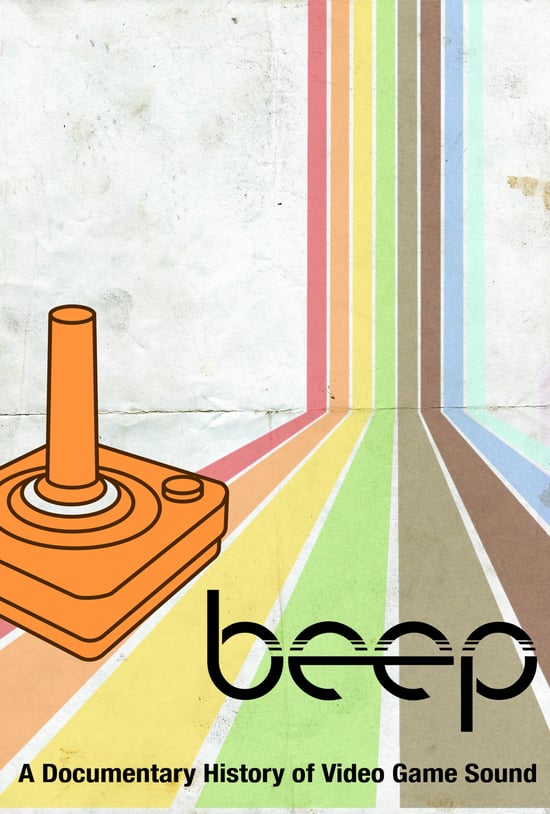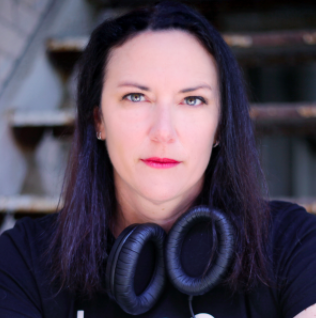As a lifelong music lover and someone who has worked with sound for nearly twenty years, it occurred to me on an October day, that I had never lived without sound. We’ve all been blindfolded for fun as kids, or had to walk around somewhere very dark where we’ve temporarily lost our sense of vision, but we can’t turn our ears off. What could I learn from a day without sound?

I decided as an experiment that I would spend a full waking day without sound. Upon awakening in the morning, I put in Happy Ears earplugs (quite comfortable silicon in-ear plugs), which promised a reduction of between 22 and 26dB. I then wore some safety earmuffs overtop (the kind worn on gun ranges and construction sites), Homitt Ear Defenders, which also promised a reduction of 34dB. With working inner ears, it’s not possible to make yourself completely deaf—we hear a bit through bone conduction as well as through our ears—but this was pretty close. Unless there was a very loud sound, I was, for all intents and purposes, without sound for the day.
My day went like this...
I tread the stairs carefully as I walk into my kitchen. Unable to hear my steps on my hardwood floor, I have to pay attention to where my feet are going. I pick up the dog’s metal bowl off the floor, and hesitate for a fraction of a second as it doesn’t slightly ring the way it normally does. It’s the first sound I really miss that I hadn’t paid much attention to before.
I take the dog for a walk. It’s raining, and I immediately miss the sound of pitter-patter on my umbrella, the running of water in the eavestroughs. I debate doing this on a day that’s not raining, because it’s my favourite sound, and to miss it seems a shame, but I soldier on. I come up with other reasons not to block sound out, for example, it’s dangerous. My family are going through a lot and someone may need to reach me on the phone. I come up with a lot of excuses, and then I wonder about my own anxiety in regards to cutting myself off from noise. Will I be able to last a full day? I feel stressed and anxious without the comfort of sound around me.
A car pulls out from a driveway and I see its lights in the darkness, but I don’t hear it in advance. I have to be more aware, visually, of what’s going on around me. I can’t hear the dog’s collar jingle. I can’t hear his laboured breathing to understand how he’s feeling today. Usually the damp makes it difficult for him at his old age, and I’m not sure how far I should walk him because his breathing is not telling me. I can’t hear someone coming up behind us to pull him out of the way in time, and they look annoyed, but if they made a grunt of annoyance I didn’t hear it either. I apologize, and my voice reverberates in my head, seeming loud and odd. I have a strong desire to be as quiet as possible, to match the silence around me.
There is no construction noise from the roundabout being built at the other side of the park. I’m relieved by this, since the constant beep-beep-beep of the trucks backing up drives me crazy—my least favourite sound. The joggers I see daily probably say “good morning” to me, but I just tip my umbrella. Everything I do seems very loud: my footsteps are thumps that bang inside my head, internal sounds, like bones crunching together. My breathing. Am I imagining that my back hurts more than usual, that my shoulder has a new pain? Or is that just because I’m paying more attention to my own body than usual?
At home, I listen for the pour sound of the cereal into my bowl, to know when it’s full and stop myself. I have to wait for the kettle to finish and shut off before I know it’s boiled. I have to watch while I pour the coffee. I can no longer just hear when to stop. I need to pay attention. My cereal is very loud inside my head, and perhaps sounds like a giant stomping on tiny houses. I’ve converted most of my house to LEDs, but the hum of the one remaining CFL bulb in the hallway that usually annoys me is gone. I have to look up to check that I’ve shut the light off as the daylight starts to enter. I read the news, but without the joy of my music in the background to distract me, it hits me harder, and I have to shut it off. Social media is worse. The words are harder, no longer tempered by relaxing music. I turn on Freedom App to block news and social media so I don’t try to check it again and make myself more miserable. I begin to work: I have to prepare a keynote presentation I’m giving, on sound. I automatically move to turn on my music, again, and feel lost. Several times in the next few minutes I reach for Spotify or iTunes. I can’t even hear myself type and I make more mistakes.
By 8:30am, I’m beginning to hear my own heartbeat getting louder in my head: whoosh whoosh whoosh whoosh. I feel the neighbours move around next door. I can’t hear it, but there is a vibration in my desk, which backs onto the wall we share. I’ve never noticed this before.
By 9:30am, I notice how much quieter I am. There is almost a sacred quality to the lack of noise around me. It’s like walking into a sacred place, and feeling the desire to suddenly be incredibly silent. Like my own sounds would disturb the beauty and solemnity of this quietude. I whisper “good boy” to my dog, afraid to break the silence for me, not for him.
10am. The quiet is beginning to get to me. I long to hear music. I try to think back, and realize there is probably not a single day in my life when I haven’t heard music. Even the days I spent in hospital, the first thing I’d ask for was my Walkman. I remember a nurse coming in and looking at my cassette collection and approving of my taste, when I was 15 or so. I used to rig my earbuds up through the sleeves of my sweaters and listen to music in class through one ear. It was a constant presence. A constant comfort for me that’s now gone, and I miss it in a way that is hard to describe.
I realize how many sounds I hear every day, but even as a person attuned to sound in my environment, never really paid attention to as I go about my daily activities. If I missed this much, how much do most people miss hearing in their daily lives?
In the past year, my dog, an old 14-year old rescue mutt, has taken to softly tapping his paws on the floor to get my attention: he wants water, or a treat, or attention. Previously, he’d just come over and pester me, but with his aging body it hurts him to stand up and takes effort to come over and have me guess what he wants, so he just taps until I figure out what he needs. Today he looks at me like I’ve abandoned him. I make sure he has food and water. I pat him on the head and take a few extra minutes to make sure he feels loved today, in case I miss him tapping for me. I later realize he didn’t eat his breakfast, and I left it downstairs, where he can’t go get it. I didn’t hear him eating or not eating, so I didn’t notice he had missed it.
I decide to give my talk a break and turn my attention to another task, immediately reaching for my music again. I guess I can admit it now. I am an addict, and music is my drug of choice. It tempts me to break from my sound-free experiment. I tell myself that it’s been nearly four hours: I can quit now. I have experienced enough. I have learned. I fight with myself to hear something again. I imagine this is like quitting smoking, although I’ve never been a smoker.
Is my internet connection slower today? Or is it the lack of a soundtrack that makes it feel slower? My phone blinks - I got a text message. I don’t know how long it’s been blinking. My withdrawal is palpable. My mind is trying to convince me that I can take a break for lunch and listen to music. That’s enough now. I’ve made my point. I think of an excuse to drive somewhere, since I wouldn’t drive without sound and would have to take a break from my experiment for that. I can’t think of anywhere I need to go. I did not expect the pull of sound to be so strong. It makes me want to cry for deaf people who have once been able to hear. It must be agonizing to have been able to hear and then to lose it...
On the positive side, I feel far more contemplative. Less stressed out despite my increased anxiety. I think this must be what meditation feels like, if I wasn’t so distracted. I look outside and realize a tree is being planted. A machine is digging a hole but I can’t hear it. Then, I hear the muffled surface of a sound: a pile driver momentarily cuts through the silence. I’m grateful for it. It was like seeing a person again after being lost in the woods. I greet the sound like a friend, with a big grin. Then, it stops and leaves me alone again.
By 3pm, my ear canals hurt a lot. I’m frustrated by the lack of sound now. I’m getting irritable. My ears are ringing, a constant high pitch whine. The earplugs are quite comfortable for shorter periods, but with the added pressure of the muffs pushing down on my pinnae, it’s really uncomfortable. I tell myself it’s just a few more hours.
At 5pm, two hours short of my self-imposed deadline, I give up. My ear canals hurt too much to continue. It’s been 10 hours.
Taking off the earplugs and muffs, I experience the world anew. Every little sound is now noticed. The kid outside playing basketball, the kid on a pogo stick down the road (a pogo stick!), the soft rush of traffic on the road a block away. The dog is breathing again, and I can hear his soft tapping to tell me it’s time for his dinner. I take him out for a short walk again, and now I can hear the rain in the eaves, the runoff down the pipes into the sewers, the few remaining leaves on the trees rustling. Every sound is amplified, and wonderful.
Afterword
As a sound person, I’d recommend anyone interested in sound try this experiment at least once. I don’t think a full day is necessary, but a few hours will give you a sense of what sounds you’re not normally noticing in your everyday life. Certainly when you return to sound, you’ll experience sound in a new way, at least until you get accustomed to it again. If you do decide to try this experiment, please don’t drive, or cycle, or put yourself or others in any danger.
 |
No longer just the “ugly stepchild” of the games industry, Beep traces the history of game sound from the Victorian penny arcades through pinball and to today’s massive industry of soundtracks and live music. With clips from over 80 interviews with game composers, sound designers, voice actors and audio directors from around the world, Beep, directed by Karen Collins, is the definitive documentary on game sound.
|



Commentaires
Matt Miller
December 14, 2017 at 10:12 am
This was such a thought-provoking article. It makes me think that a sound designer should help direct the visuals for a game suited for the hearing impaired, and a visual artist should consult on the sound design for a game geared towards the visually impaired. I want to work on a game that filters sound to replicate bone conduction. Imagine, you can only perceive the sound of your own body, and those able to travel through solid surfaces. - Matt
John M
January 11, 2019 at 01:45 pm
I am the opposite of this. I do not like sound and I do not enjoy or listen to music. I find it irritating at first, then painful-- like water drip torture. I have always wished for a way to turn off my hearing but this article has made me realize how much we depend on sound to do basic tasks. Thanks for the insights.
Sergio Abdalla
December 16, 2022 at 11:43 am
performance art, literature, sound education, all in one. great piece, thanks for that Karen